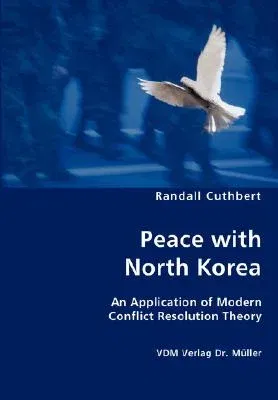Randall Cuthbert
(Author)Peace with North KoreaPaperback, 8 August 2007

Qty
1
Turbo
Ships in 2 - 3 days
In Stock
Free Delivery
Cash on Delivery
15 Days
Free Returns
Secure Checkout
Print Length
188 pages
Language
English
Publisher
VDM Verlag Dr. Mueller E.K.
Date Published
8 Aug 2007
ISBN-10
3836423502
ISBN-13
9783836423502
Description
Product Details
Author:
Book Format:
Paperback
Country of Origin:
US
Date Published:
8 August 2007
Dimensions:
24.41 x
16.99 x
1.02 cm
ISBN-10:
3836423502
ISBN-13:
9783836423502
Language:
English
Location:
Saarbrucken
Pages:
188
Publisher:
Weight:
308.44 gm

